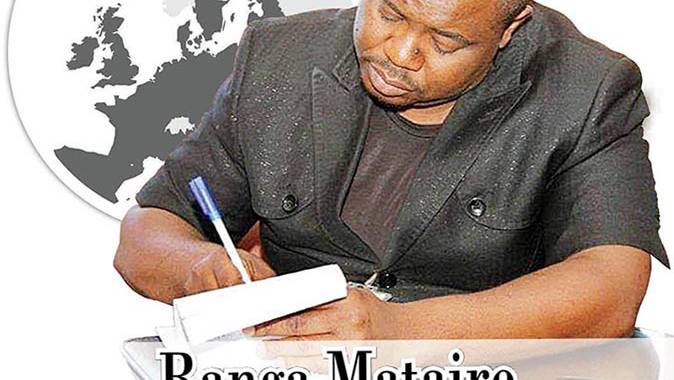We are indeed free forever

Ranga Mataire
Writing Black
My sincere apologies to all “Writing Back” readers. Yours truly had gone on a refresher soul searching sojourn. It was a worthwhile sabbatical that made me reflect on pertinent issues that affect Zimbabwe, Africa and the globe.
Sadly, very little has moved in terms of the world order. Africa is still at the mercy of those who once colonised us and we continue fighting and “Writing Back” to empire.
We are confident of victory just like our forefathers who fought slavery and colonialism. We owe it to future generations to bequeath to them a nation and a continent conscious of its well-being in the global working of things.
So let’s start with the independence of Ghana. Kwame Nkrumah’s country celebrated its independence from colonial rule on Saturday 6 March. Why is the independence of Ghana so important to Zimbabwe and the continent?
Although geographically small, Ghana is one of the leading countries in Africa owing to its wealth and it being the first country south of Sahara to attain independence from colonial rule.
Besides the charismatic Pan-African leadership of Nkrumah, Ghana achieved its independence because all its ethnic groups lived in harmony and peace before and during colonial rule. The unity was to prove critical in the fight against colonial rule as attested to by Nkrumah when he said there is “strength in unity.”
Nkrumah viewed Ghana’s sovereignty not only for the Ghanaian people, but for all of Africa, saying “Our independence is meaningless if it is not linked up with the total liberation of the African continent.”
Indeed, within the next decade, 30 more countries gained independence from colonial rule inspired by Ghana. Zimbabwe was to gain its independence 23 years later. And as a country, Zimbabwe has a special connection with Ghana.
Our founding President Robert Mugabe had a teaching stint in Ghana and besides gaining professional exposure in a black majority ruled country, he also found a partner in Sarah Francesca Hayfron, better known as Sally Mugabe.
No point in guessing about the huge impact Ghana’s experience had on our founding leader who until his death espoused Pan-African unity as the panacea to a myriad challenges faced by Africa.
No one could have described the significance of Ghana to Africa any better than Tanzania’s founding leader Mwalimu Julius Nyerere who said the heralding of independence to the West African country was “the beginning of the end of colonialism for the whole of Africa.”
In a speech read at Ghana’s 40th independence in 1997, Nyerere said “Ghana was more than just the beginning. Ghana inspired and deliberately spearheaded independence struggles of the rest of Africa.”
Barely a year after its own independence, Ghana convened a meeting of all independent African states that included Ethiopia, Morocco, Egypt and Sudan, followed by a conference of anti-colonial movements from across the continent.

The Daily Graphic had a clear message about expectations of Ghanaian independence
There were the events that were to lay the foundation for the launch five years later of the Organisation of African Unity (OAU) and its Liberation Committee.
By the time the OAU was established on 25 May 1963, the number of independent African countries stood at 32, and the principle of self-determination and majority rule was already encompassed in the organisation’s charter.
Now, this is the history that every conscientious African needs to know. Ghana is very central to the liberation of Africa as its founding leader played a significant role in inspiring other African leaders to dislodge colonial rule from their domains.
As Africans we celebrate with Ghanaians their independence. The words of Nkrumah on the eve of independence still ring loud and remain an inspiration to many when he declared: “Ghana is free forever. And thus Ghana, your beloved country is free forever.”
Nkrumah did not end there. He exalted Ghanaians to embrace a new personality saying: “We have awakened. We will not sleep anymore. Today, from now on, there is a new African in the world! That new African is ready to fight his own battles and show that after all, the black man is capable of managing his own affairs. We are going to demonstrate to the world, to the other nations, that we are prepared to lay our own foundation.”
Here lies the problem that Zimbabwe has. While other countries were content with political independence, Zimbabwe declared that it was free forever and that independence would be meaningless without the ownership of the means of production — the land.
The crime that Zimbabwe is accused of is that of enlightenment or in Nkrumah’s words awakening. Zimbabwe dared to fight its own battles and showed the world that after all the black man is capable of managing his own affairs.
This definitely flies against Western sensibilities whose roots are in colonial racial hegemony that perpetually labels an African inferior and incapable of managing his own affairs.
Many will remember that the argument put forward by successive colonial governments in the then Rhodesia was that Africans were incapable of running their own affairs.
And the fact that Zimbabwe has dared to perforate that racial labelling and identification has not only angered those in the North, but decided to make this country between Zambezi and Limpopo an example of what should not happen in Africa.
Zimbabwe is arguably the only African country that has successfully undertaken a wholesale and fundamental agrarian revolution that empowered thousands of black majority farmers who are holding their own in terms of producing.
We are aware that there are those who want us not to talk about the need for continued liberation. We are conscious of those who think we must not talk about colonialism. We have those among us who think it’s now outdated to talk about the impact of colonialism of all facets of our living.
No, colonialism did not end in 1980. Long colonialism still persists and its seen in how the West continue to have sanctions on us when its apparent that its nothing, but racism that drives their attitude towards Zimbabwe.
With the coming of the New Dispensation and its emphasis on reforms, re-engagement and economic diplomacy, there is zero basis for maintaining the sanctions. Let it be known however, that Zimbabwe will never relinquish its quest for total liberation.
Like Nkrumah said, we are indeed free forever!









Comments